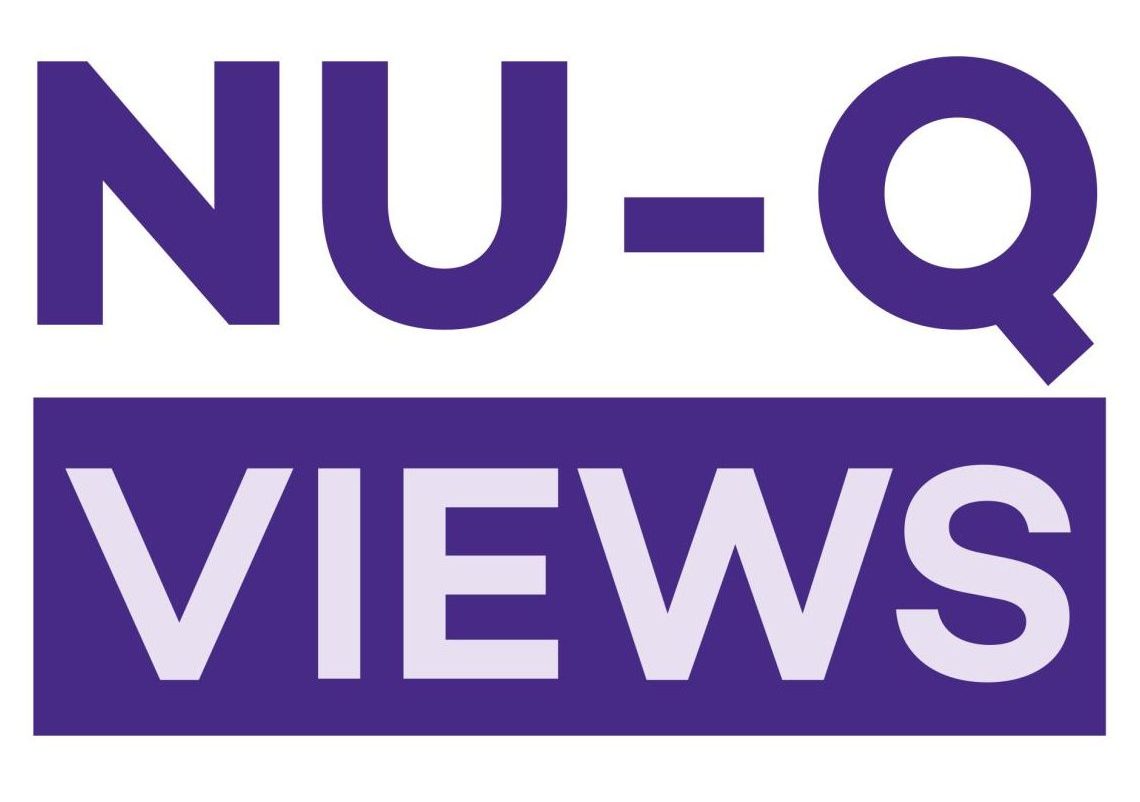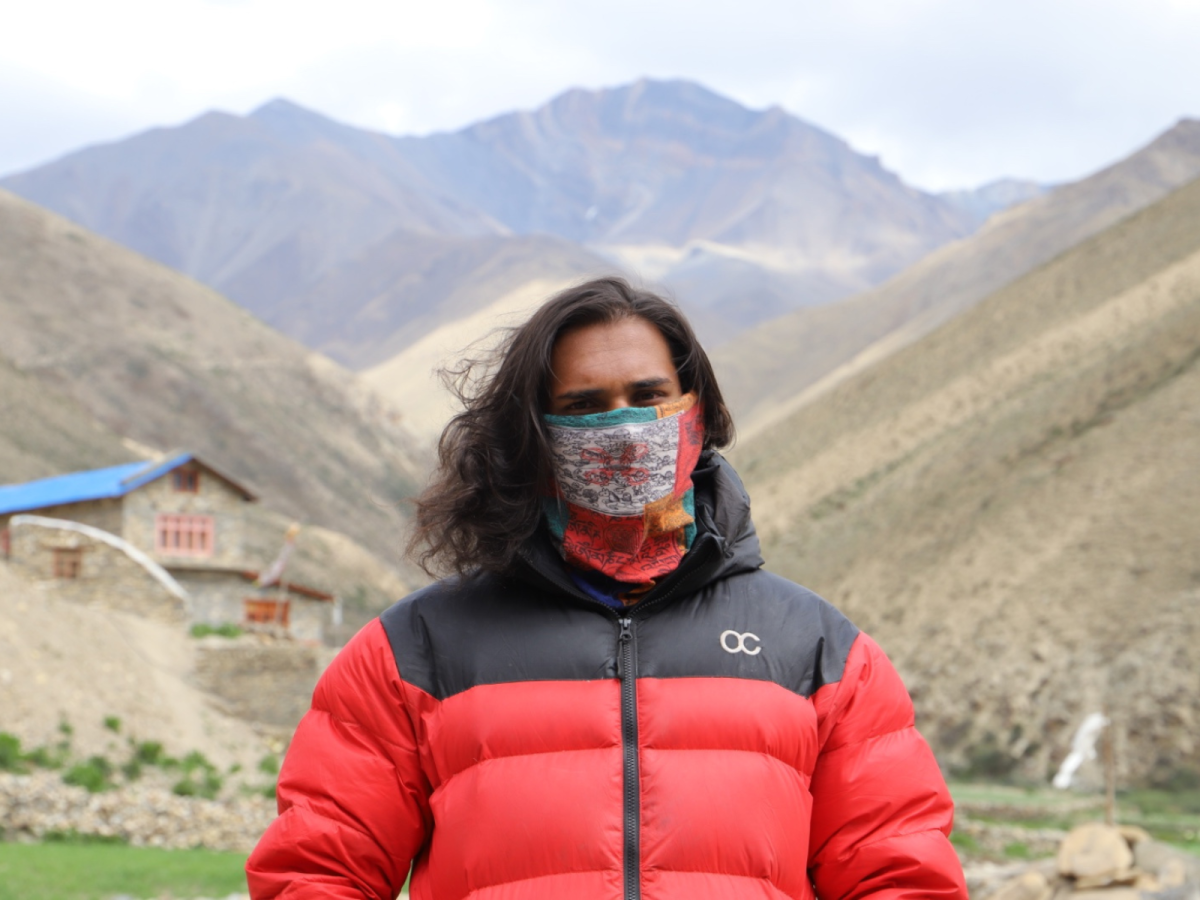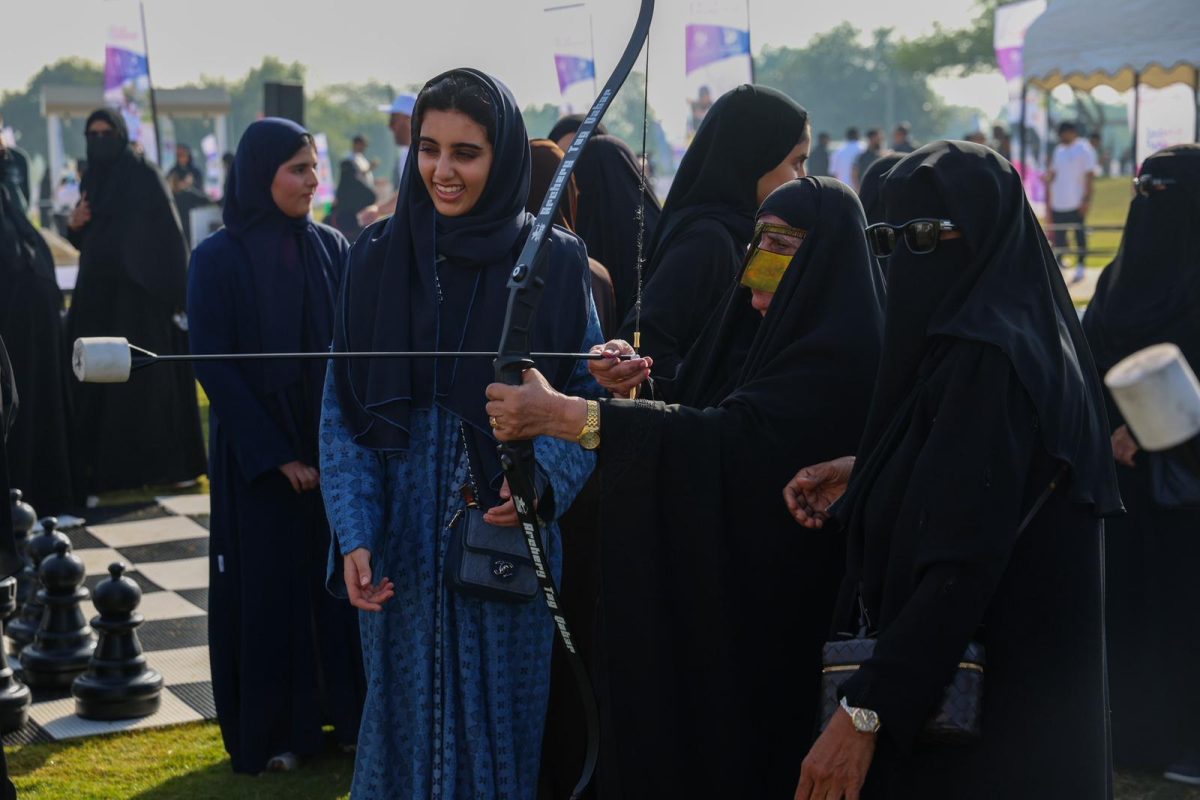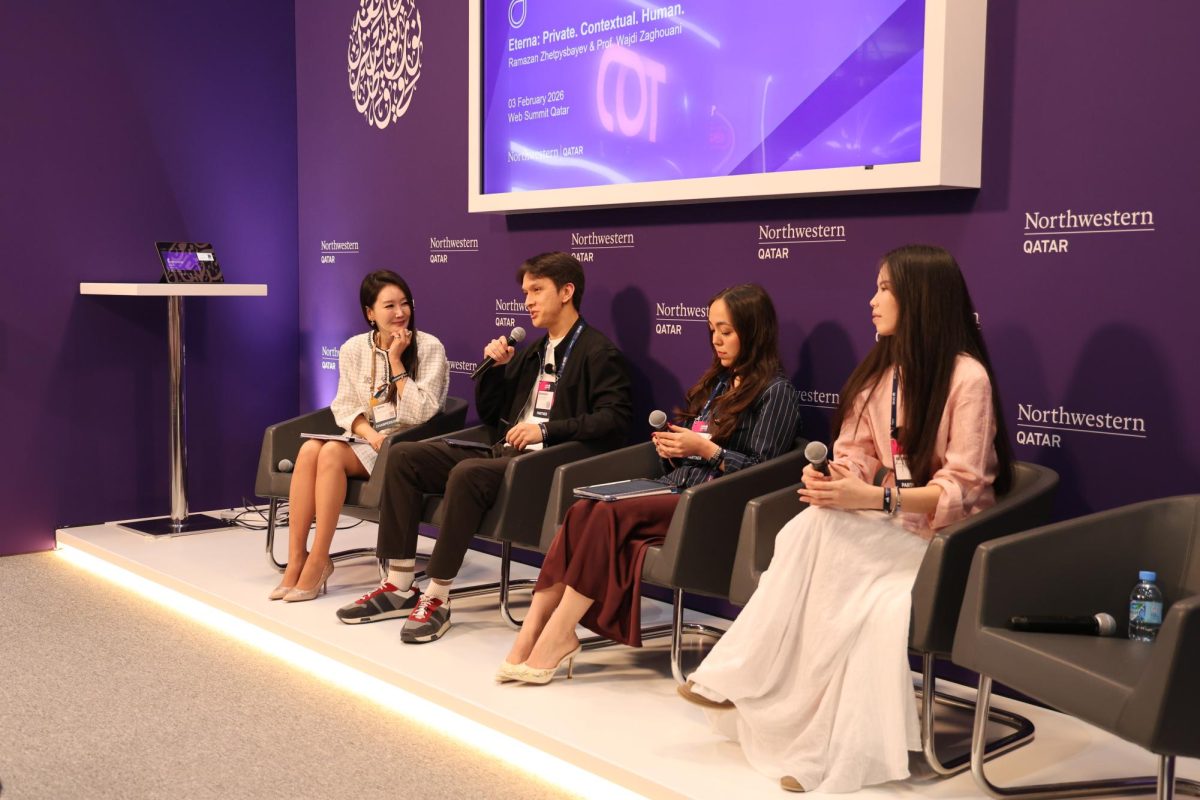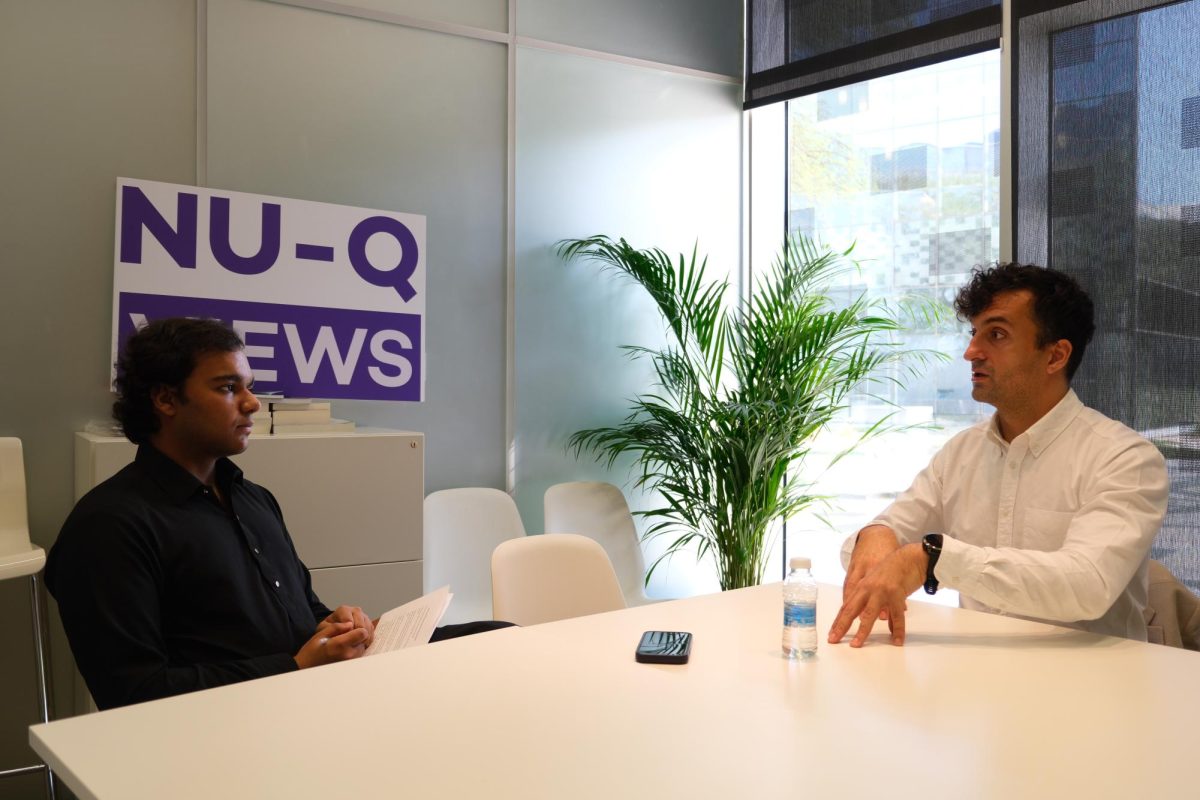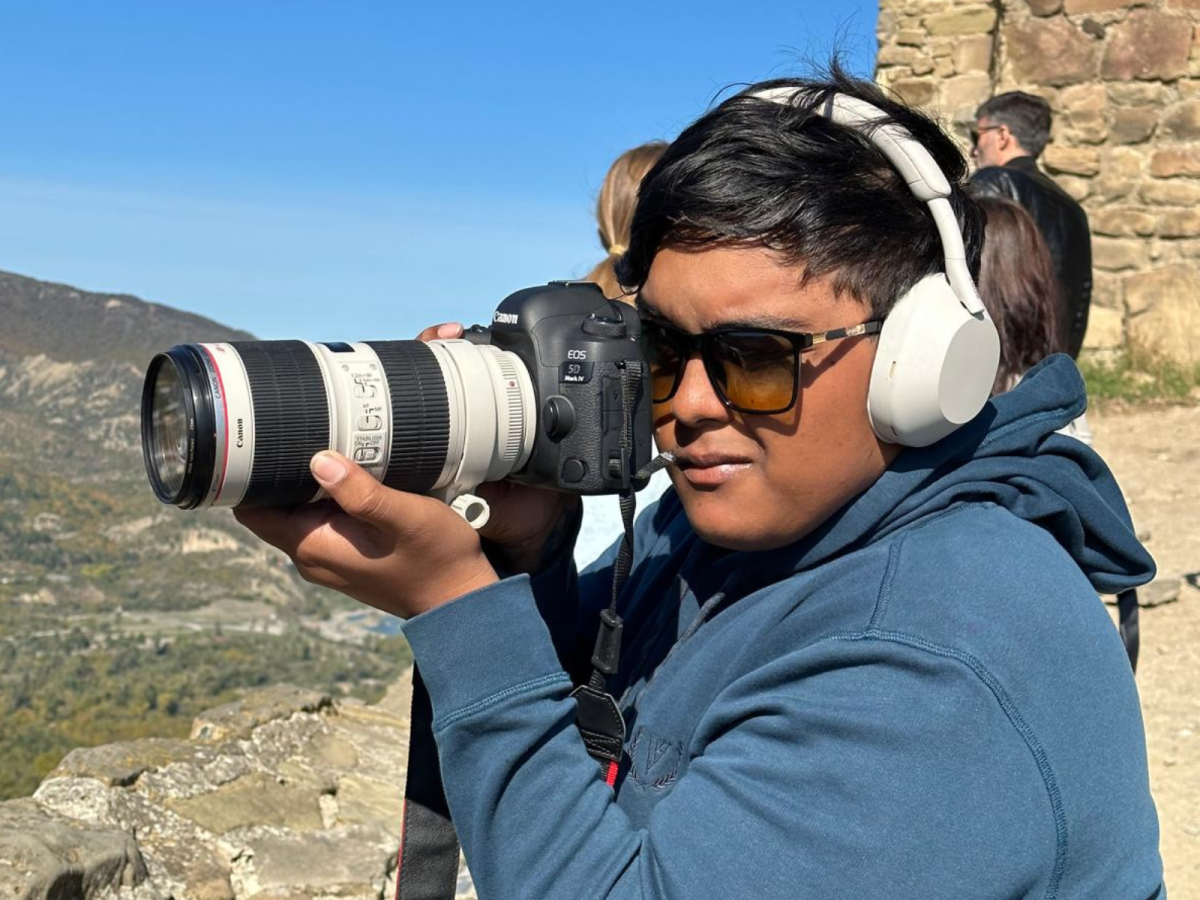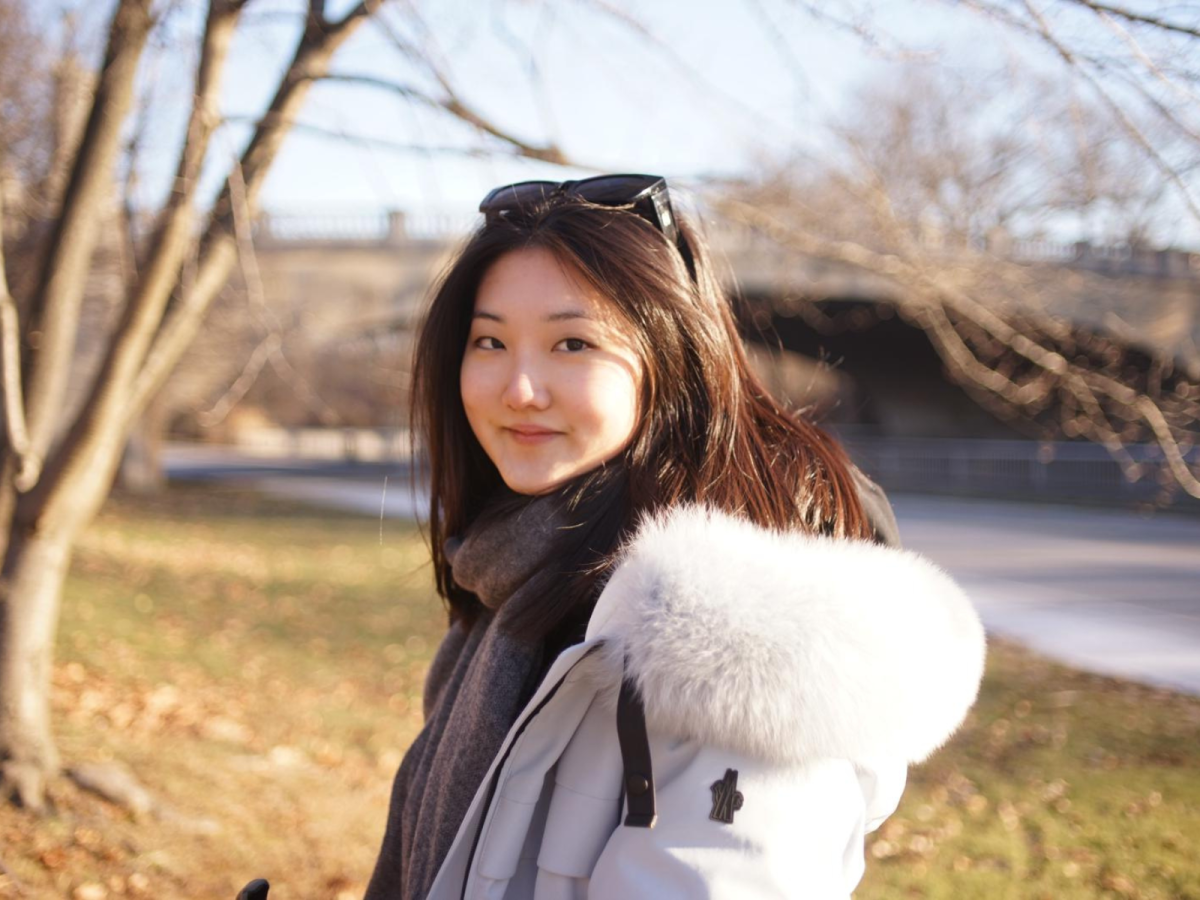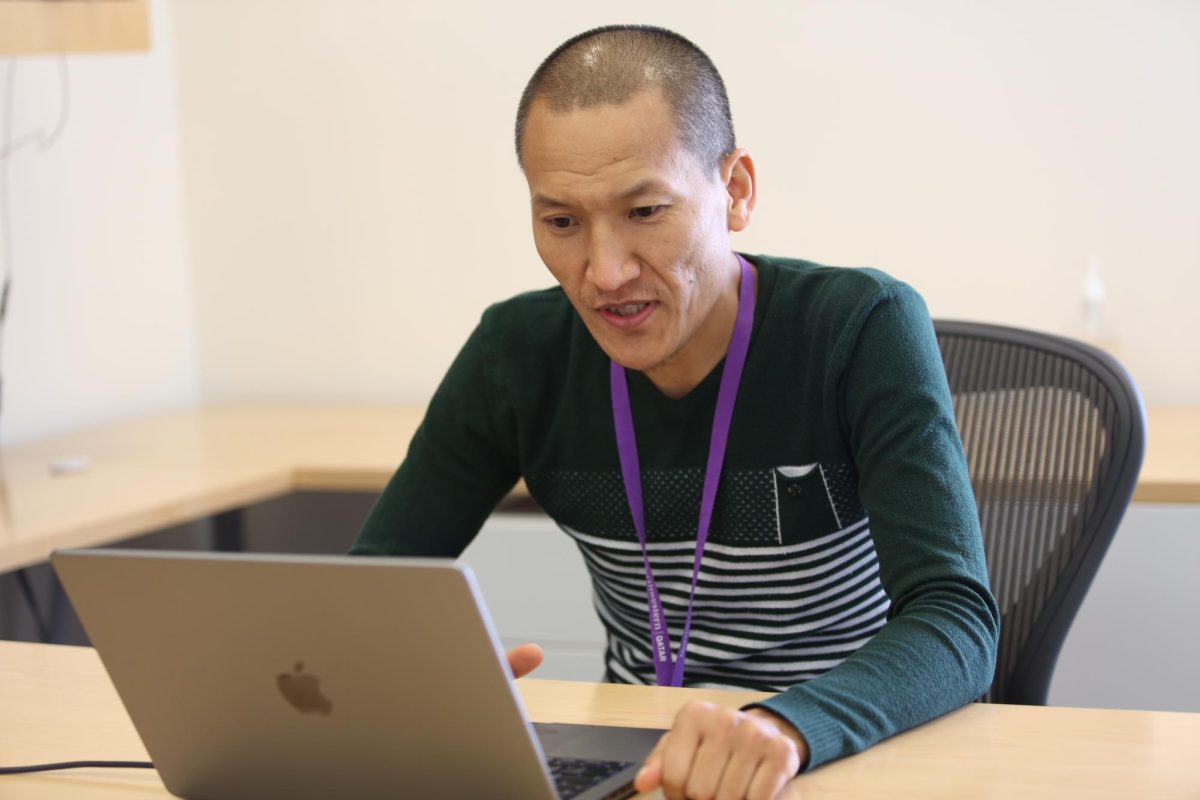Innocent eyes that were once shaken by witnessing the exploitation of hard-working mothers in Nepal turned into that of curiosity. Shrijan Pandey’s childhood became the inspiration for his project under the Pulitzer Center. Looking into his journey and other projects, his passion for journalistic storytelling has set his career towards a mission of capturing compelling human interest stories.
“Mostly, I try to do [documentaries] on stories that I already know a little bit more about and things I care about,” Pandey says. As a journalism junior at Northwestern University in Qatar (NU-Q) with a minor in Media and Politics, he brings knowledge and commitment to working with topics that personally resonate with him.
Pandey focuses on portraying stories with documentaries as a creative medium. For him, a powerful documentary addresses a theme hidden in plain sight. “Issues that are in the discussion but really don’t have a face to it, […] I try to portray those kinds of stories,” he said.
During the summer in 2024, a casual visit to a café adorned with unusual paintings sparked Pandey’s curiosity. The images inspired him to develop a story, which he later turned into a project for the undergraduate fellowship at the Institute for Advanced Study in the Global South at Northwestern University in Qatar (#IAS_NUQ).
“I looked at the walls and there are pictures of kids in the mountains, like the Himalayas, small communities and faces of children. I was pretty shocked; I didn’t expect to see that in that café. Then the owner came, and I started a conversation. Apparently, they were part of this training program educating children in the mountains,” he explained the origin of the work he produced for #IAS_NUQ, which centered around community-led education amongst Doplo indigenous populations in Nepal.
“I initially started writing a profile for my journalism class, and while I was writing it, I thought this story is so good, I need to make something larger out of it,” he said. With concepts that started small, some ideas emerged from his youth.
Pandey was just a small child when he watched the hands of his mother—the sole breadwinner of his family—move swiftly, knitting through the long nights to provide for the family after his father died. At 12 years old, he began helping in the small shop she built from the threads of her work and soon found that knitting was not just a means of survival but a representation of the quiet strength inhibited by women like his mother.
Today, he draws inspiration from her and this deeply moving chapter of his life, as he works on a documentary about female labor and exploitation in Nepal’s informal economy. This project, supported by the prestigious 2024 Pulitzer Center Reporting Fellowship, marks a significant step in his transformative journey.
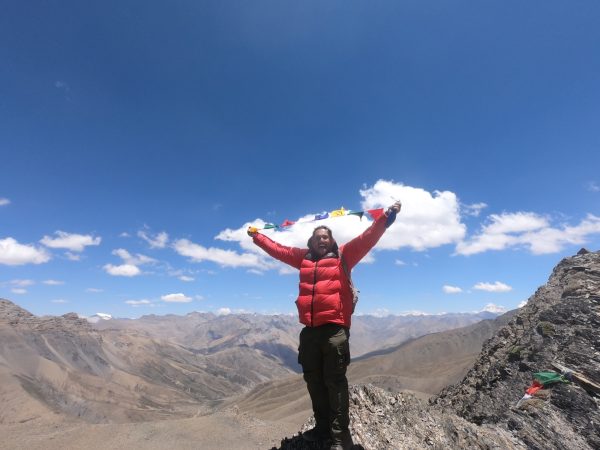
“The markets have changed, the system by which we operate globally has changed, but the workers are still being treated the same way, despite the West saying all of these things about protecting us,” Pandey said, voicing his frustration at false promises being made to the community he has lived alongside and at the mainstream media’s failure to shed a light on these issues. “So it’s a personal story because it connects to my mother and my life in general [with] witnessing all of that [and] being a part of that whole circle of exploitation.”
Before coming to NU-Q, he had already begun to delve into the dynamic field of journalism, trying his hands at advertising, writing, and policymaking through a couple of scattered internships. “After I came to Northwestern, I felt like it gave me a direction into the kinds of internships that I wanted,” he said.
In his first year, Pandey did an internship at The Nepali Times, a venture fueled solely by his resources and determination. In three months, he wrote eight stories that deepened his understanding of his home country and kick-started his journalism career.
His journey did not stop there. He then secured an internship with Al Jazeera’s podcast channel, The Take. He described it as a “very intense internship” after stating that he started on October 9th, 2023, just two days after the outbreak of the war on Gaza.
“Every day used to be like a rush. I’d be reporting on war and listening to these very sensitive interviews. […] I feel like that showed me a very important way to understand journalism because I felt like that exposure was very important at that time,” he said.
Through all of the internships and fellowships that Pandey has taken part in, his ambition of telling impactful stories remains strong.
“These projects become so much larger than you. It’s not just a university project, you know, it’s something that the world will see or something that these communities deserve to have,” he said.
